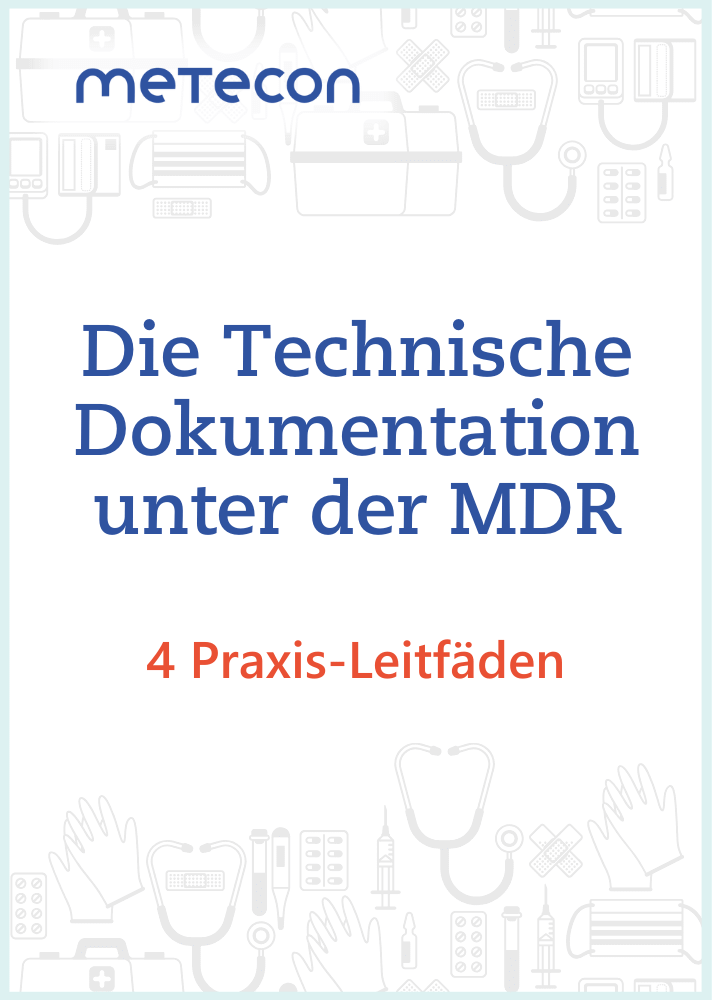As a manufacturer you have to guarantee the safety and performance of your device throughout the entire product lifecycle. Both, safety and performance, are established through clinical evaluation and assessed continuously through constant PMS and here, the Post Market Clinical Follow-up (PMCF) plays a very important role. The MDR significantly tightens the requirements for clinical evaluations: Whereas in the past it was often sufficient to base the assessment on the comparability with another product (equivalence principle) or on the literature, it is now necessary in most cases to generate one's own clinical data..
What are the actual clinical functions of the product you are developing? And where might it be enough to prove efficacy with non-clinical data? Together we will quickly become smarter.
Get in touch with us!Is the clinical evaluation done once the product is on the market?
Not really! As a manufacturer, it is important that you can ensure the safety and performance throughout of your product its lifecycle. There are several ways to plan appropriate Post-Market Clinical Follow-Up (PMCF) activities as part of Post-Market Surveillance (PMS). These include the analysis of specific questions in a large number of patients, the long-term observation of patients, and the investigation of known risks from the literature. With this data, you can identify potential problems with your product at an early stage, correct them and continuously adapt your follow-on products to the needs of users.
What PMCF activities can be an alternative to clinical trials?
If clinical data is required, the following concepts might also be considered:
- Follow-up of patients from clinical investigation before market approval,
- Observational studies (collecting data under routine conditions),
- Analysis of retrospective data of users or patients who have already gained experiences with the device,
- Appropriate monitoring of the scientific literature, and
- Analysis of other post-market surveillance activities (e.g. service reports, hotline calls, customer complaints, etc.).
Is post-market clinical follow-up (PMCF) required?
The MDR requires regular PMCF activities, i.e. the proactive systematic collection of clinical data after the medical device has been placed on the market, as evidence of the safety and clinical performance of the device.These PMCF activities are defined in a PMCF plan, which becomes an integral part of the technical documentation and is managed by the PMS system within the Quality Management System (QMS). The data generated by PMCF is summarized in the Post-Market Clinical Follow-Up (PMCF) report and used to update the clinical evaluation at regular intervals. The advantage: PMCF activities are usually much less time-consuming to organize and carry out than clinical trials conducted prior to CE marking.

Successful adaptation to the MDR: Our whitepaper series for your medical devices
Have you already adjusted your technical documentation to comply with (EU) 2017/745 (MDR)? If not, it's time to take action and ensure that the technical documentation of your medical devices meets the requirements of the MDR. Only by doing so can you guarantee the safety, quality, and effectiveness. In our whitepaper series, you will find valuable best practices for adapting your existing products to the MDR. Start directly with Part 1: "Conversion of Your Existing Products" to secure market access for your products in the EU!
(Available only in German Language)Download our whitepaper for free now.
(Available only in German Language)Download our whitepaper for free now.
Our services in this field
To be prepared for and successful in the future not only the relevant expertise in terms of clinical evaluation and verification is necessary but also the knowledge and experience of the actual clinical functions of a device and when it might be sufficient to prove efficacy by means of non-clinical data; because in many cases in vitro experiments in a laboratory may be conducted instead of extensive clinical tests.
Our services
Our services
- Developing a relevant strategy how to generate clinical data,
- Supporting the development of PMCF processes and plans and
- Helping with the successful implementation of PMCF activities.
